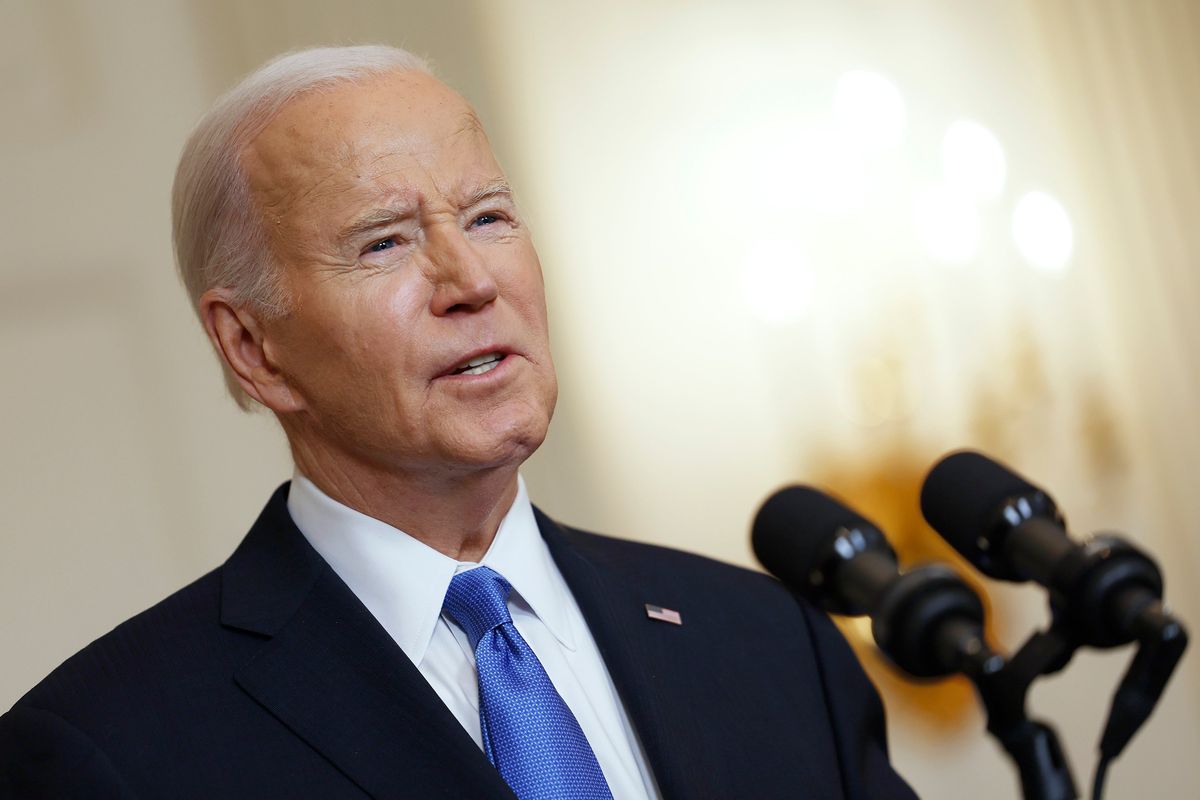Biden says Ukrainian city’s fall shows cost of U.S. aid delays

President Joe Biden blamed U.S. lawmakers’ failure to approve emergency aid to Ukraine for the fall of Avdiivka, which handed Russia a significant battlefield victory after months of fighting for control of the city.
Biden said he called Ukrainian President Volodymyr Zelenskyy on Saturday “to let him know I’m confident we’re going to get that money,” though he warned that more Ukrainian cities might fall if Congress doesn’t approve the funding.
“There’s so much on the line,” Biden told reporters near his home in Rehoboth Beach, Delaware. “The idea that now we’re running out of ammunition – to walk away, I find it absurd. I find it unethical. So I’m going to fight to get them the ammunition they need.”
Attempts to unlock emergency foreign aid to U.S. allies have been stuck in a partisan deadlock in Congress for months, leaving Biden and Zelenskyy to make increasingly urgent appeals for Congress to move forward as Ukrainian supplies run low.
Ukraine was forced to withdraw from Avdiivka after its “soldiers had to ration ammunition due to dwindling supplies as a result of congressional inaction, resulting in Russia’s first notable gains in months,” the White House said in a statement after Biden’s call to Zelenskyy.
Biden “emphasized the need for Congress to urgently pass the national security supplemental funding bill to resupply Ukrainian forces,” according to the call readout.
The U.S. Senate this week approved $95 billion in assistance for Ukraine, Israel and Taiwan after months of delay, but the legislation still faces formidable obstacles in the Republican-led House of Representatives.
Ukraine’s military said earlier Saturday it’s withdrawing troops from Avdiivka, the same day that Zelenskyy addressed an annual conference of military and foreign policy leaders in Munich. He told the meeting that Ukraine was withdrawing to save lives.
‘Artificial’ shortage
Zelenskyy renewed appeals for allies to arm Ukraine, saying Russian President Vladimir Putin is reaping the advantage.
“Keeping Ukraine in an artificial deficit of artillery and long-range weapons allows Putin to adapt to the current intensity of the war,” he told the Munich Security Conference, where he met Saturday with Vice President Kamala Harris.
Ukraine is struggling with dwindling military supplies as Russian forces press their offensive at a time of uncertainty about U.S. aid. Zelenskyy changed his military leadership last week as Russia’s full-scale invasion heads toward a third year.
Avdiivka, an industrial satellite city located just north of Donetsk – a regional capital under de-facto Kremlin control since 2014 – has been battered by bombardment and heavy fighting since the spring of 2022.
Losing the city, once home to 30,000 people, adds to problems for Ukraine’s political and military leadership, which is also struggling with a lack of soldiers and war fatigue.
The Kremlin made Avdiivka a priority in a year when neither side is expected to make major strategic gains on the battlefield, according to Western officials who spoke on condition of anonymity.
Moscow is pressing its advantage as Ukraine’s military runs low on ammunition. The last time large swaths of territory changed hands in Ukraine was more than a year ago, when Kyiv’s troops liberated part of the Kherson region in the south.
European officials, who recently approved a more than $50 billion aid package for Ukraine, have been increasingly concerned by the delays in Washington.
Russia’s invasion of Ukraine will hit the two-year mark on Feb. 24. For the first time since the 2022 invasion, more Ukrainians believe things are moving in the wrong direction, according to a survey by the Kyiv International Institute of Sociology.
The poll was carried out around the time Valerii Zaluzhnyi, the highly popular military chief, resigned after months of tension with Zelenskyy.
The share of people with a pessimistic outlook rose to 46% in early February from 32% in December, while those seeing things moving in the right direction dropped to 44% from more than half.